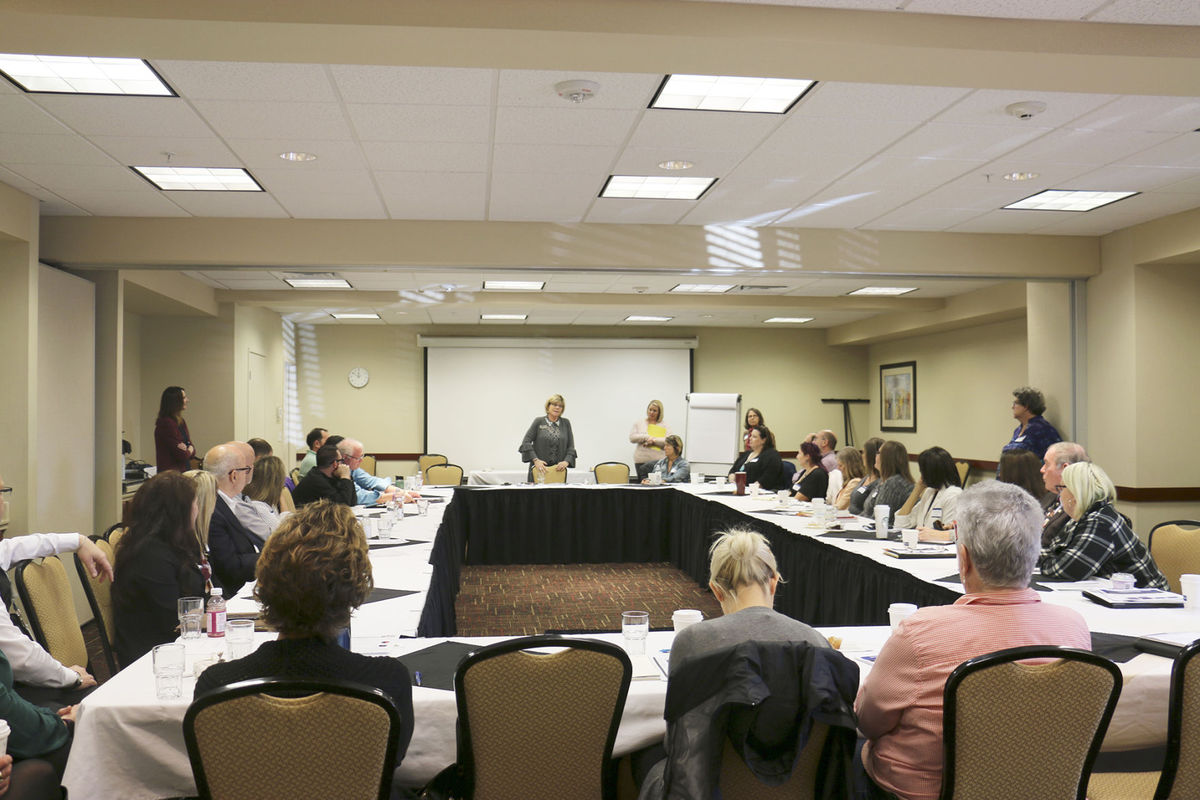Listening Forum: Attendees Address Services, Gaps as Organization Looks to Find a Way to Pull Families Out of Poverty
United Way of Lewis County partnered with the State Department of Social & Health Services to bring a Listening Forum on Poverty to Lewis County on Tuesday in order to help identify gaps in services for families who struggle to make ends meet. Both agencies have similar goals to drastically reduce poverty in the coming years. United Way of Lewis County has focused its efforts to pull 30 percent of families in the county out of poverty by the year 2030, while DSHS has set a similar goal statewide to reduce poverty by 25% by the year 2025.
 “I love that people are coming together, because we all know it’s going to take collaboration to get to the root of the problem,” Debbie Campbell, executive director of United Way, said. “Both are pretty audacious goals, but we have to start somewhere.”
“I love that people are coming together, because we all know it’s going to take collaboration to get to the root of the problem,” Debbie Campbell, executive director of United Way, said. “Both are pretty audacious goals, but we have to start somewhere.”
Various service-focused agencies came together with educational leaders, law enforcement personnel and mental health providers at the Holiday Inn Express in Chehalis to discuss what community groups do locally to help break the cycle of intergenerational poverty and also figure out where services have fallen short or need to be expanded. “We know there are many ways to measure poverty in our community,” Campbell said. “Bringing together partners who are providing the services and can speak to what services are available and what the gaps are is important to our work.”
Erica Hallock, with Fight Crime: Invest in Kids, facilitated the day’s discussions. The statewide organization works with law enforcement leaders in communities to make investments in children’s programs that reduce crime. Hallock said the organization is supportive of United Way’s mission to combat poverty. “We think that’s a game changer, and we appreciate their leadership like always,” she said, adding that United Way is uniquely positioned to help not only through the money collected, but also through a facilitator role. “We are really applauding the leadership of this United Way and think that they are leading the state and helping families out of poverty.”
Lori Pfingst, chief of programs and policies with the community services division of DSHS, said the goals complement one another. To her knowledge, DSHS is the first state agency to include a strategic goal focused on poverty reduction into its plan.
“I think they are in complete alignment, just a different benchmark,” Pfingst said of the goals laid out. “Both of those are ambitious goals, but if you look at any indicator that you care about whether it’s in education, health, criminal justice, child welfare or economic development, the higher the rate of people struggling to make ends meet, the worse you do on those indicators across the board. I think while the timing of those goals may be different, the intent is the same. If we were to be successful we are going to see improved children and family wellbeing and community wellbeing across the board.”
Lewis County was the ninth stop for the Listening Forum on Poverty. Visits to other areas will continue into early 2018. By hearing the issues communities face, Pfingst said the state will be able to come up with a customized approach for poverty, since a “one size fits all solution” would not be effective.
“I say this all the time, but there’s no more robust finding than the impact of not having your basic needs met on a well being of kids, families and communities,” she said. “… The fact that one in three kids in Washington state lives in households that are struggling to make ends meet undermines those goals. It’s not just about those families, it’s really about our state’s collective wellbeing.”
Although a vast amount of services are present in Lewis County, organizations don’t always get the amount of funding they need to properly address the issues at hand.
David Eatwell, executive director of the Human Response Network, touched on that issue. “Part of the problem is those people who control the purse strings also control the size of the purse,” he said of elected officials who control taxes. “… At some point people have to understand that these are our employees. There has never been an instance in history where austerity has led to prosperity. We have to spend and invest in the future to make things happen.”
Lewis County Commissioner Edna Fund said the county has worked to address the issue of poverty through grants that funnel through the county’s department of public health and social services. The money is subcontracted to service organizations. She also said a one-tenth of 1 percent tax on mental health as well as a Nurse Family Partnership with Thurston County has kept the focus on addressing the problem.
Campbell said the topics discussed would be used to try to figure out a way to move forward. “I don’t think any of us thought we’d walk out today solving poverty,” she said. “But we will continue to work and keep you informed. We will share this back with our board and see how we can really dig in and get to the root of these causes.”

